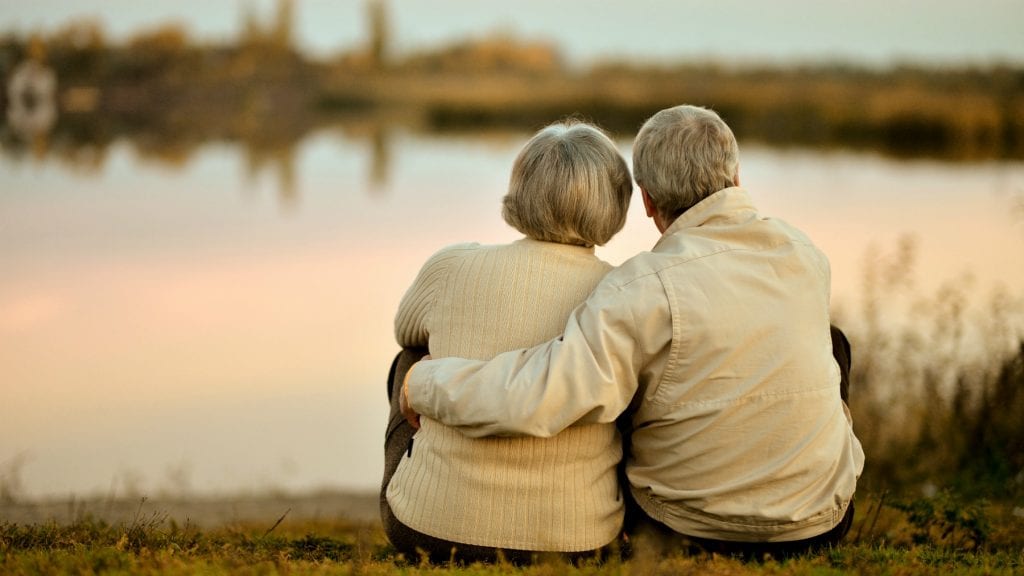Last Updated on October 20, 2020
 This post is sponsored by our partners at The Conversation Project, dedicated to helping people talk about their wishes for end-of-life care. Click here to get your Starter Kit today.
This post is sponsored by our partners at The Conversation Project, dedicated to helping people talk about their wishes for end-of-life care. Click here to get your Starter Kit today.
Forget the quest to find the perfect Valentine. The person who really deserves candy, flowers and your appreciation is the one who will stand by you and honor your end-of-life wishes!
It can be a difficult thing to talk about with your spouse or significant other, but there is truly no more loving gesture than telling the person who has chosen to be with you for better or worse that you trust him or her with both ends of that spectrum. And it’s an opportunity to offer to play that same loving role in return.
It doesn’t have to be morbid or even sad. It is a celebration of your lives together! Take these examples as inspiration.

Marsha, whose husband died in 2014 from a rare form of cancer.
“I knew how my husband wanted to die, and I did my damnedest to respect and realize his wishes. When the perfect storm came, we weren’t ready, but we were on the same page. And that page was, ultimately, his to write – not mine, not our friends, not even his doctor.
He’s dead and I miss him so. We had 34 good and bad years, and I, in hindsight, accept and embrace those years. His engagement with his death, and his acceptance of it, and of my role as the guardian of his wishes, continues to give me strength. There’s a hole in my heart, as my mother said when she lost my father to cancer. But my husband and I dug that hole together, as best we could, to fit him.”
Jean, whose husband wanted to make sure that he would never lose his dignity.
“In the end he died as he wanted, at home, just me and the children – and hospice – no machines, no tubes except the catheter. He slipped away. The hospice nurse said later she had never been at such a peaceful death.
This is my model of how I would like to die myself as far as this is possible, as a gift from those I love to me and as my last gift to them.”
Chris, who didn’t have the conversation and wishes she had.
“My husband and I did not have, for me, a satisfactory conversation addressing his wishes, thoughts, feelings. He only communicated these things in fragments, to many people. He may have been trying to spare me pain, as I was trying to spare him pain. Maybe he felt he had communicated everything he needed to communicate. Maybe I wasn’t listening carefully enough. Maybe I should have forced the issue. It takes enormous courage to discuss these things, for both parties. People should recognize this, and have the conversation while the dying person still has mental clarity, and everyone has the energy.
What I learned from my own experience is the importance of really living life each day, or each week, or each month, as if it were the last; there is no way of knowing. I will commit to expecting good things, being kinder, doing as much of what I love as possible, and spending my energy on people I love, or could get to love.”
If you’ve already had the conversation with your loved one (and it doesn’t have to be a spouse! The Conversation Project has a Starter Kit which is a great way to bring it up with a friend, family member or other trusted member of your circle), Valentine’s Day is a great time to say thank you.
- Thank you for understanding that if I’m ever ill and unable to express my own wishes, I want you to be my voice.
- Thank you for agreeing to respect my plans.
- Thank you for loving me enough to take on this responsibility.
- Thank you for agreeing to open your mind and heart to this conversation and to take seriously what I’ve asked for.
- Thank you for giving me peace and comfort about my future — no matter what happens.
And remember — this is an ongoing discussion, and not something that’s set in stone. You may change your wishes, or have a life event that helps you see things from a different perspective. You may ask your loved one to accept something that he himself or she herself is not totally comfortable with.
So, take this Valentine’s Day to shower your loved one with appreciation and gratitude. They last a lot longer than a box of chocolates!
Our partners at The Conversation Project have more real stories from real people as well as resources, more Starter Kits to download for free and a full Resource Center for helping others have the conversation as well. Learn more at theconversationproject.org.

